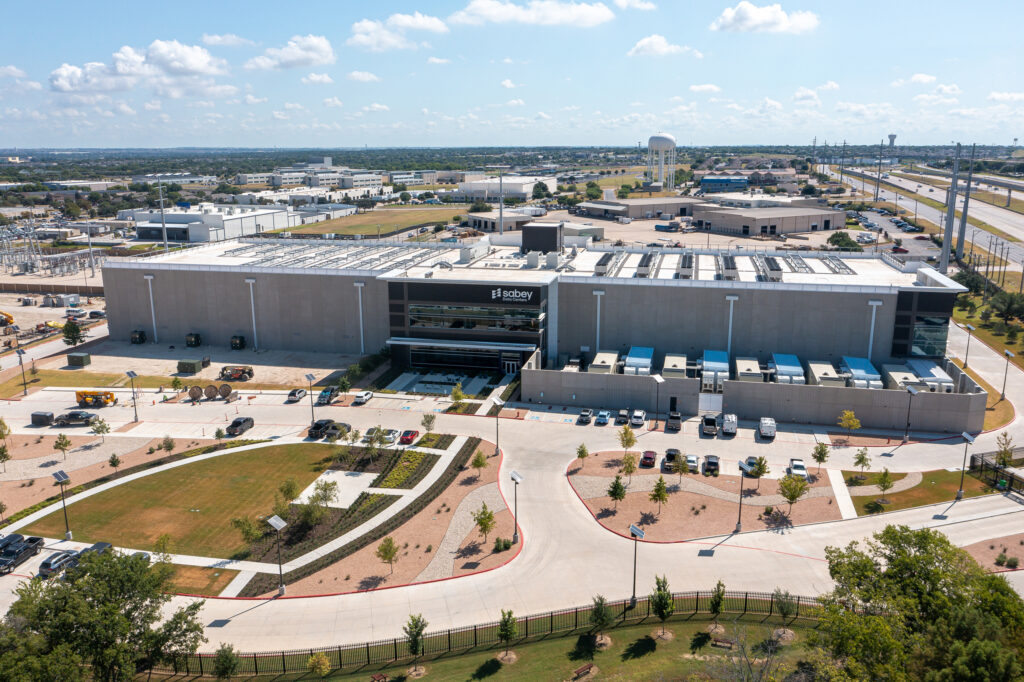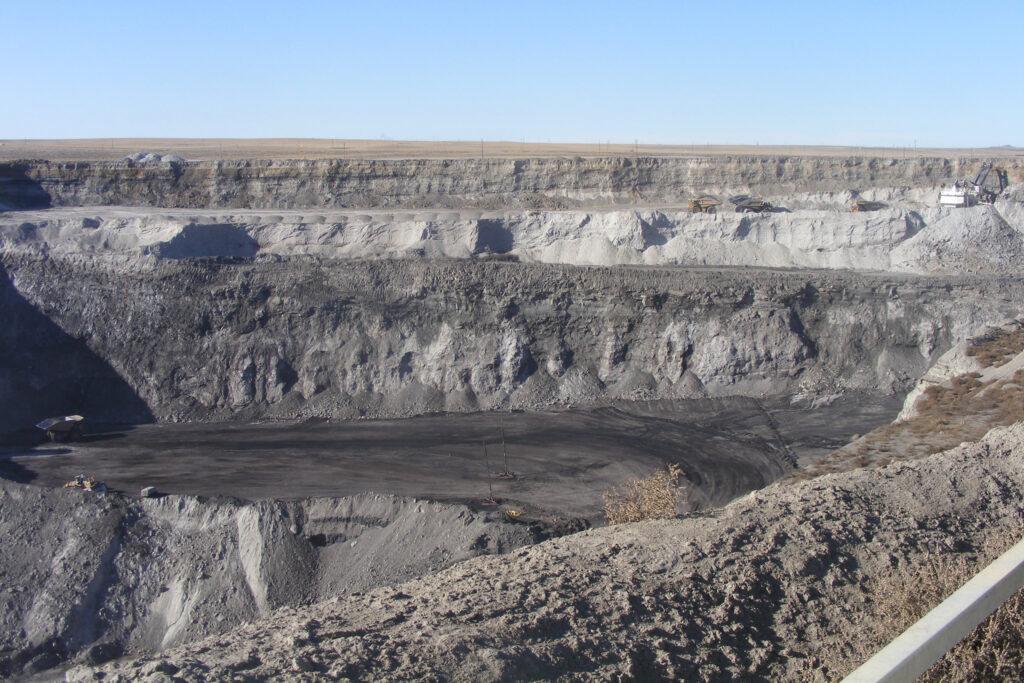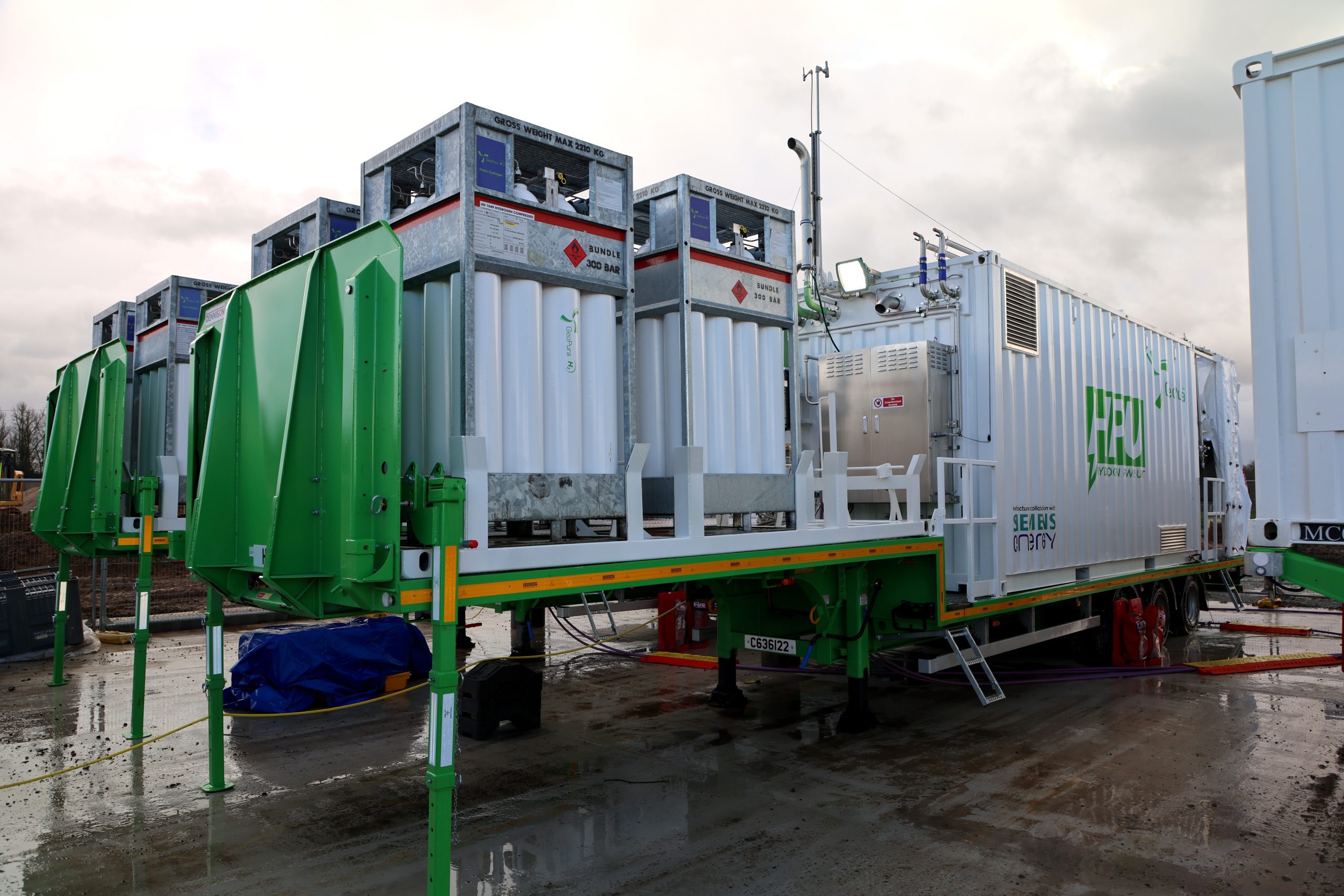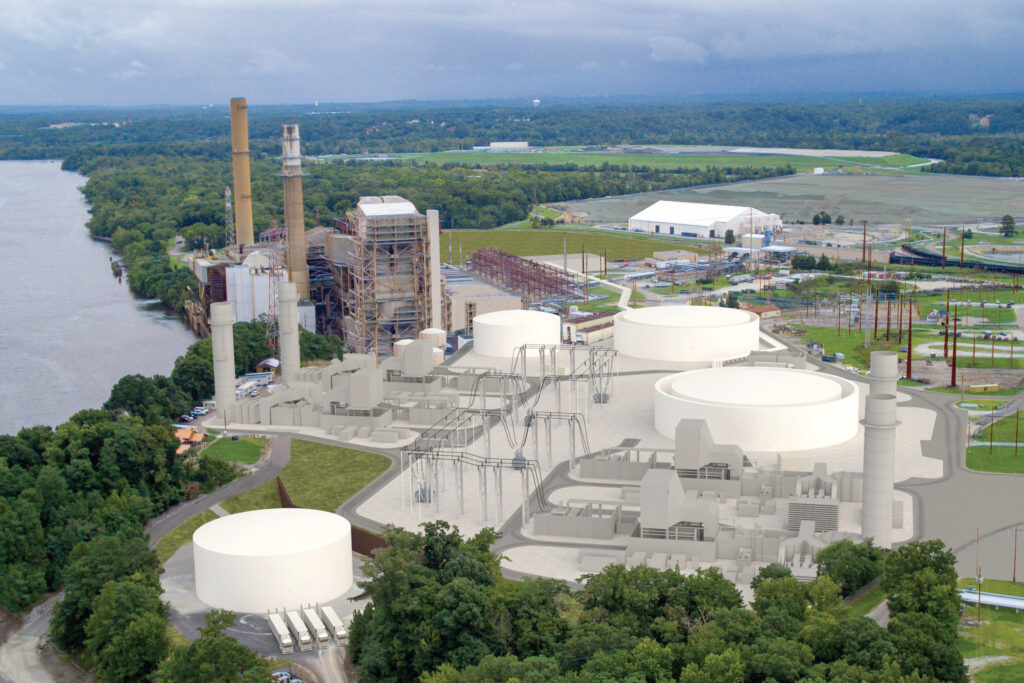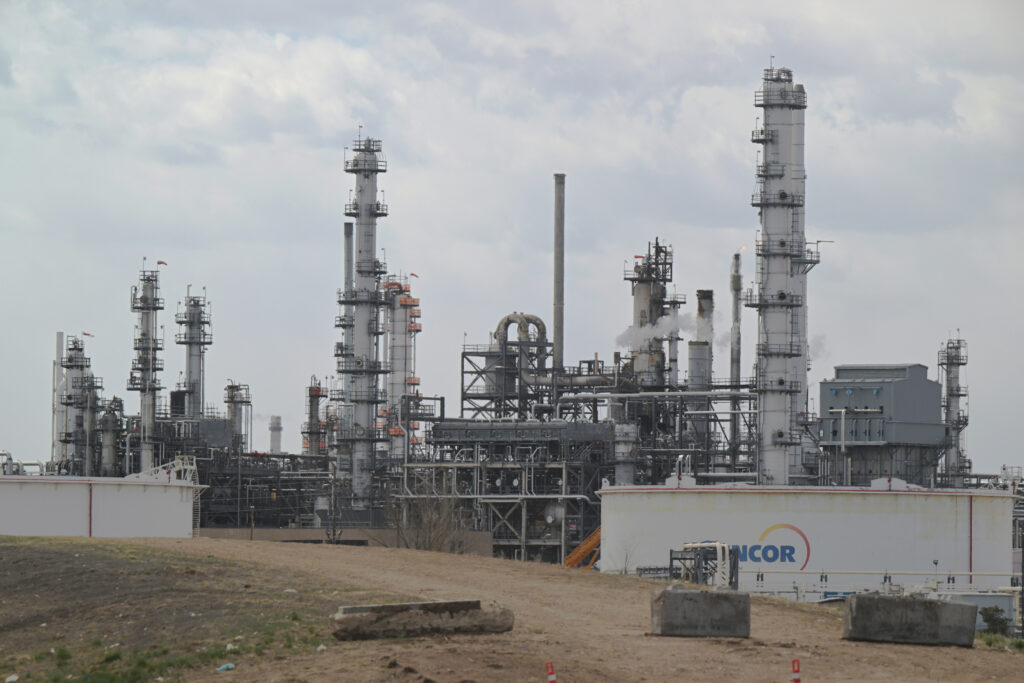CHESTER, Va.—And just like that, there’s another data center to be built in Virginia by one of the richest companies in the world, Google.
Except, instead of being located in the data center dense region of Northern Virginia outside the nation’s capital, this massive server farm is on the drawing board a couple of hours south, just outside Richmond in Chesterfield County.
“Today, all of us are demonstrating that cutting-edge technology can thrive in every corner of the commonwealth and every corner of the country,” said Ruth Porat, chief investment officer at Google and its parent company, Alphabet, at an announcement of a $9 billion investment by the company in Virginia.
Porat spoke at Brightpoint Community College, describing an investment that will be used across the state, at existing data centers in Loudoun and Prince William counties in Northern Virginia, as well as at the new center proposed in Chesterfield County.
Other recent Google investments in Virginia include a data center in Botetourt County, in southwest Virginia. In July, the tech company announced a partnership with the state to offer 10,000 scholarships that residents can use to learn AI and other job certification skills. Within six weeks of the announcement, about 4,500 people signed up, Gov. Glenn Youngkin said at Wednesday’s announcement.
But details on the specifications of the Chesterfield County warehouse-like facility that will house the computers processing Google’s artificial intelligence and internet functions are scant, which is also the case with the proposed Botetourt County facility—and Google officials declined to go into detail about either facility. The timeline to build the data center in Chesterfield County, the size of the structure and how much electricity and water it will need have yet to be publicly disclosed.
Still, Jim A. Ingle, chairman of the Chesterfield County Board of Supervisors, touted Google’s support for Chesterfield County’s schools and YMCA—a sentiment echoed by Youngkin.
“Having a company of Google’s caliber in Chesterfield County solidifies our position that’s a hub for innovation and economic development,” Ingle said.
Youngkin, an ally of President Donald Trump, said that AI is “at the heart of the future of business, from the manufacturing floor to marketing to financing … it’s everywhere. … I look forward to spreading it across all [of Virginia’s] students.”
Youngkin also said he’s “a big advocate” for the data centers that power AI.
“Why? They bring enormous investments, they bring a great tax base, they have great jobs” and they hire people who earn very good salaries, said Youngkin.
Still, construction of the massive data facilities raises numerous vexing questions about whether the energy-intensive server farms will be powered with renewables or fossil fuels, who will pay for the electric grid upgrades and how much water they will require to cool server networks that run non-stop, seven days a week.
Data centers in 2023 demanded just over 10,000 gigawatt-hours of electricity in Virginia. An expected increase to just over 30,000 gigawatt hours by 2040, if there weren’t barriers to build them, is partly why Dominion Energy, the state’s largest utility, is proposing a natural gas plant in Chesterfield County that would provide electricity to the grid during peak demand periods. The company is also undergoing a customer rate review to assign more costs to the industry for contracted periods.
Critics say the tech companies pursuing multiple sites for data centers inflate demand projections, which in turn calls into question a utility’s claim that dirty fossil fuels are needed for reliability, instead of investments in renewable energy, battery storage and electricity conservation measures from the industry and residents.
According to Amber Tillman, a spokesperson for Google’s data center arm, the company is committed to 100 percent carbon-free electricity 24/7 by 2030 and that 95 percent of its operations in Northern Virginia have already achieved that goal.
How much of that electricity will come from solar and wind—as opposed to more speculative new nuclear technologies—isn’t clear, Tillman said in response to an Inside Climate News question.
Porat, earlier in the announcement, said the company last year had reduced its “data center emissions by 12 percent even as our electricity consumption grew.”

Tillman said Google’s energy projections do not currently include carbon-free electricity that could be realized from another company investment in a proposed nuclear fusion plant to be built in Chesterfield County by Commonwealth Fusion Systems.
Traditional nuclear power plants, and yet-to-be built small modular nuclear reactors, rely on a fission process, which splits atoms from mined uranium to create electricity while also producing radioactive waste. The fusion process, still considered years away from commercial viability, if it is ever perfected, melds hydrogen atoms together, like the sun, to create electricity without generating long-lived nuclear waste.
“It’s a future investment that we’re really excited about, and should it come online, we will commit to be an offtaker of that,” Tillman said.
In terms of how much water data centers require to cool banks of computers, a December 2023 Virginia report found that they consume an amount of water equal to that of a large office building.
In Virginia, Julie Bolthouse, land use director with the Piedmont Environmental Council, said data centers have become efficient with water use, but the increase in AI use through data centers will bring an ever increasing demand for water.
There are alternatives, like air conditioning systems, but Bolthouse noted those would require even more electricity and can’t keep up with the AI chips heating rates. A data center could also have its own wastewater treatment plant to return water to the ecosystem, but that’s only a percentage of the water used after most of it evaporates in the cooling process.
There are ways to recycle water used in cooling data centers, she said, but that takes water out of the ecosystem, which becomes a concern during periods of drought that are increasing because of climate change.
“Really, what it comes down to is money,” said Bolthouse. “Between the amount of water consumed to cool massive facilities and the companies not being willing to put in the extra dollars to help protect our water supply. That’s the problem.”
Devon Smiley, another Google spokesperson, declined to say if the Chesterfield County data center would have its own water treatment plant, but said that the company is working with the local authority and would soon be making an announcement on water requirements.
About This Story
Perhaps you noticed: This story, like all the news we publish, is free to read. That’s because Inside Climate News is a 501c3 nonprofit organization. We do not charge a subscription fee, lock our news behind a paywall, or clutter our website with ads. We make our news on climate and the environment freely available to you and anyone who wants it.
That’s not all. We also share our news for free with scores of other media organizations around the country. Many of them can’t afford to do environmental journalism of their own. We’ve built bureaus from coast to coast to report local stories, collaborate with local newsrooms and co-publish articles so that this vital work is shared as widely as possible.
Two of us launched ICN in 2007. Six years later we earned a Pulitzer Prize for National Reporting, and now we run the oldest and largest dedicated climate newsroom in the nation. We tell the story in all its complexity. We hold polluters accountable. We expose environmental injustice. We debunk misinformation. We scrutinize solutions and inspire action.
Donations from readers like you fund every aspect of what we do. If you don’t already, will you support our ongoing work, our reporting on the biggest crisis facing our planet, and help us reach even more readers in more places?
Please take a moment to make a tax-deductible donation. Every one of them makes a difference.
Thank you,









